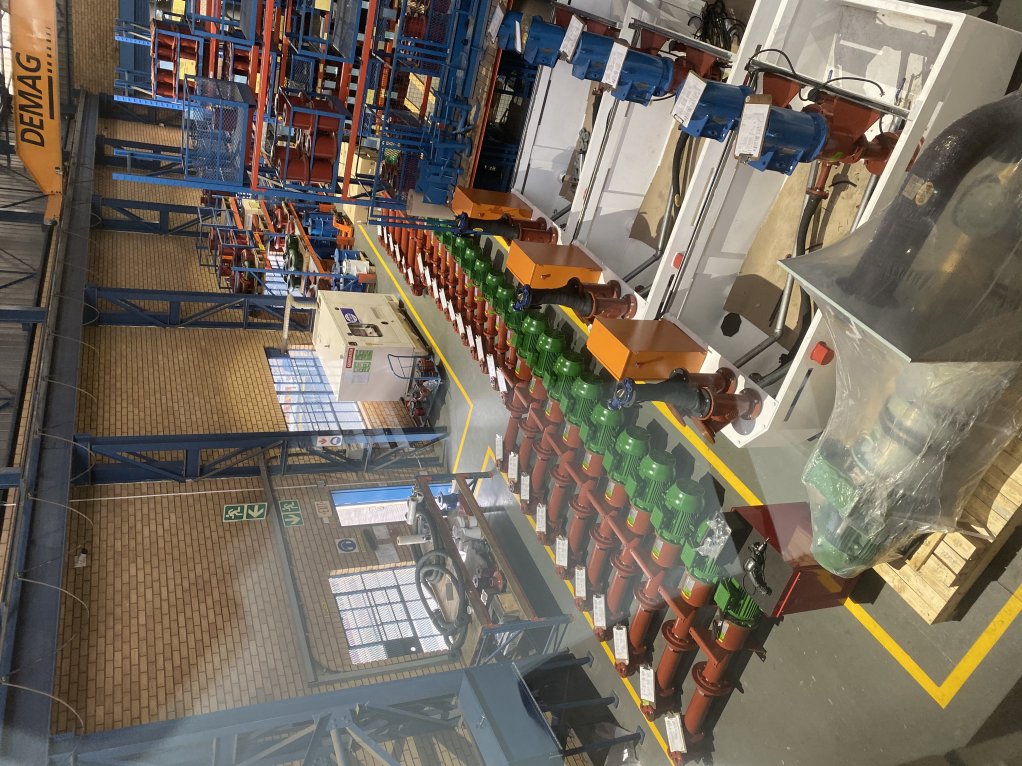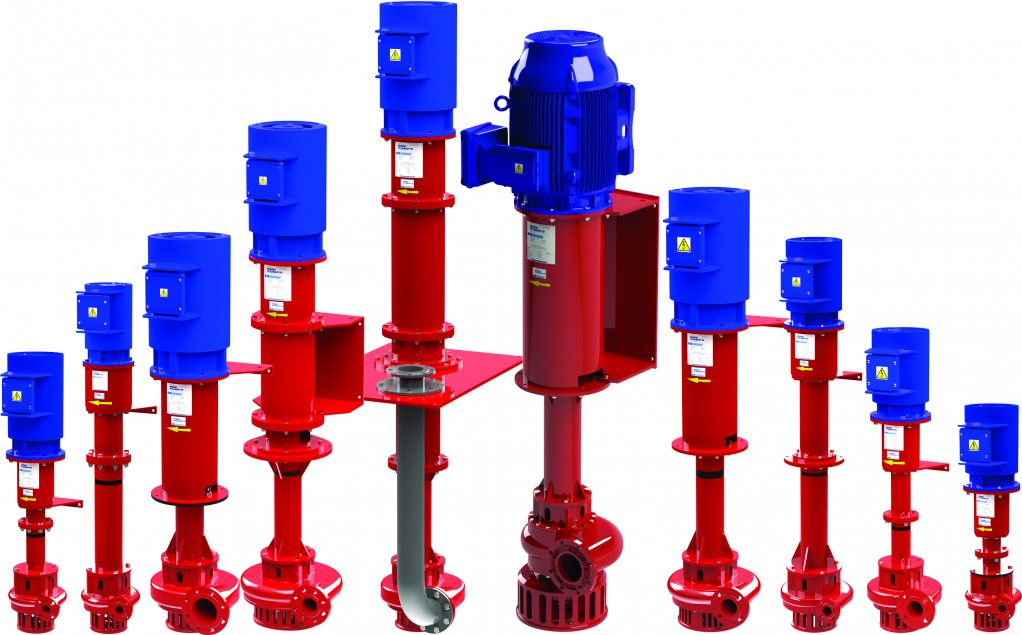Design and repairs specialist and original-equipment manufacturer Ryalsan North Engineering (RNE) Pumps’ Canadian branch is excited about its expansion into the US market, increasing the total number of its global branches to five, with a tally of nine distributorships in Africa.
The company is very excited about making an entry into the competitive US market and it expects exponential growth in the near future, owing to the increasing demand for pumps, says RNE Pumps sales manager Mark Enell.
“We are also . . . finishing up a couple of other pumps-related projects in South Africa and Zimbabwe, but we are reliant on clients bringing projects forward because we manufacture pumps based on client specifications and needs.”
He adds that RNE Pumps is invested in expanding “as far and wide” as it possibly can while still delivering on top quality, making RNE Pumps a household name, owing to its reliability and range of pumps.
Enell says that, since starting out in 1979, the company has come a long way from designing vertical spindle pumps for use in deep-level underground mining, to developing multiple applications for the paper and pulp, automotive, and food and beverage industries, as well as chemical plants and refineries.
While the pumps were initially restricted to one type and style, the company has since introduced a series of 10 pump frames with 14 performance variations and four types of materials for applications, with more materials of construction in the pipeline.
The first pump was built and marketed from a home garage in Eastleigh, in Edenvale, South Africa. Since then, the company has built two factories in Sebenza, in Johannesburg, and is renting a third for its repairs department.
As one of the earliest members of nonprofit organisation (NPO) the South African Capital Equipment Export Council (SACEEC), having joined in 2006, RNE Pumps has benefited from the NPO’s support, with the council helping to increase the company’s exports exponentially over the years.
Through SACEEC’s knowledge and information, RNE Pumps MD at the time, Adrian Griffiths, acquired several contacts, which helped the company to export its products to SACEEC-affiliated countries, allowing for growth and reach into international markets, he adds.
Speedbumps
Enell notes that, among the challenges in the pumps manufacturing industry, the biggest to date is logistics, as RNE Pumps is finding it difficult to transport its products to places such as North America, owing to batch sizes and packages being too large for airliners.
“If, for instance, you want to send six boxes of products to Canada, you may not be able to because it’s too bulky. The airliner can decide that it is taking up too much space on the plane, and then unload your whole consignment. This is causing delays for our clients and financial losses, owing to halted production.”
However, local logistics is less fraught as, in the past year, RNE Pumps’ fleet of trucks in South Africa has increased from two to five trucks, to increase the movement of products directly to the local South African mines.
Another challenge is loadshedding’s impact on production – the company had to install generators with turbines at each of its buildings, as well as rooftop solar panels.
Further, not enough skilled people are entering the pumps manufacturing workforce because the industry is not attractive to young people, says Enell, adding that the youth seem far more interested in information technology and related fields, and that “engineers, boilermakers and artisans are a dying breed”.
However, he notes that, “thankfully, our business is run like a family-owned operation and, as such, artisans who work here eventually retire here, so we are able to retain their skills for a while. We have, in the past, put a few people through technical schools. Since mid-2022, we’ve had a couple of youngsters coming to work as apprentices during school holidays and we’re hoping that they will carry on this trajectory”.
RNE Pumps would like to see those who attended its apprenticeship programme pursuing artisanal studies and this is an endeavour that the company wants to support.
“It’s not easy finding somebody technically capable, and interested in taking up an artisanal, boilermaker or technical role. There are technical schools and government initiatives and we offer support where we can, but trained professionals are not being absorbed as quickly as needed or in the numbers required,” he concludes.
Edited by: Nadine James
Features Deputy Editor
EMAIL THIS ARTICLE SAVE THIS ARTICLE
ARTICLE ENQUIRY
To subscribe email subscriptions@creamermedia.co.za or click here
To advertise email advertising@creamermedia.co.za or click here















